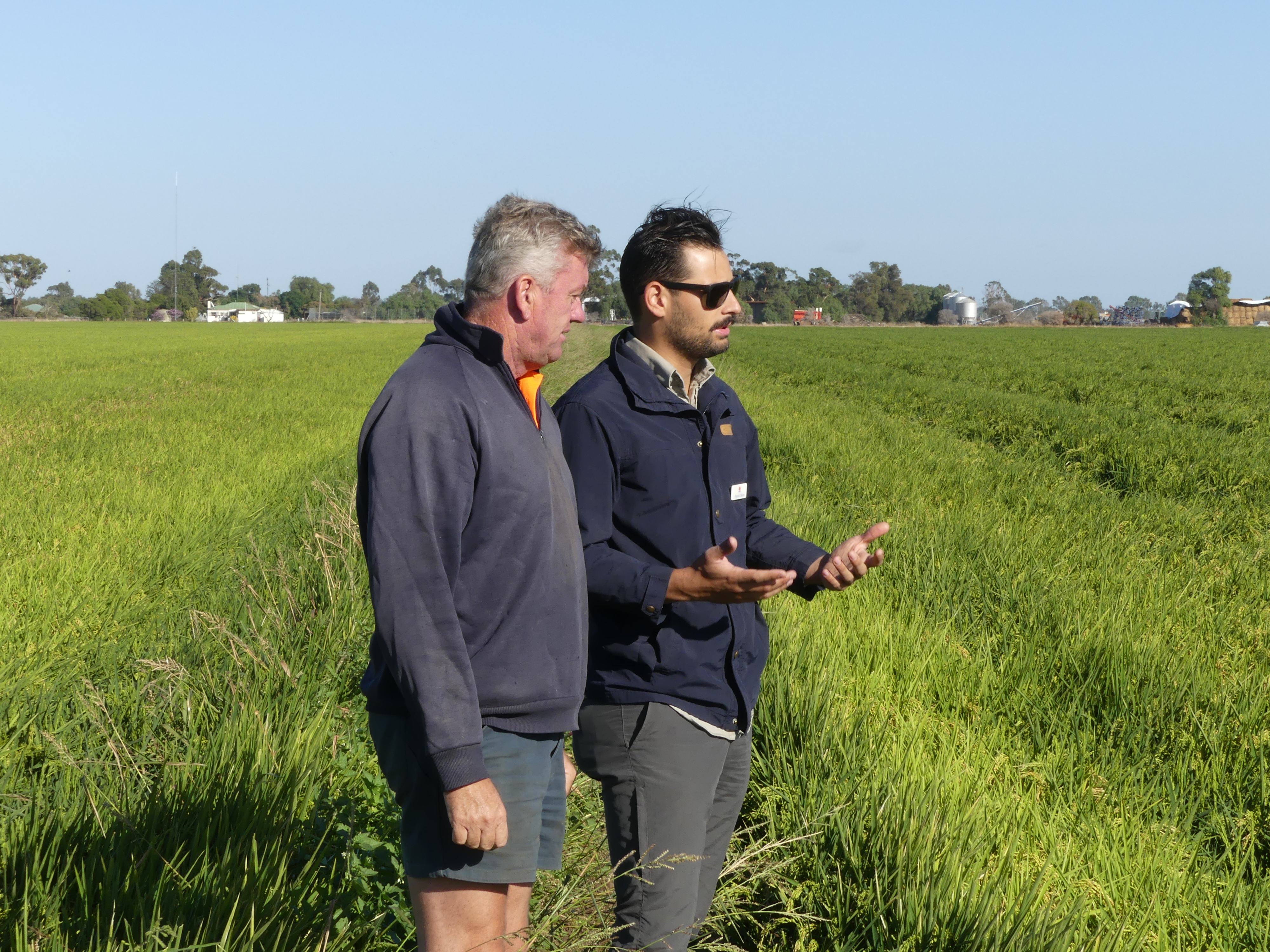
Counting the cost of duck damage
4 May 2017

With a very promising rice harvest underway across the Riverina, a number of growers are reflecting on the cost of wild duck damage to their crops during the establishment stage.
NSW Department of Primary Industries (DPI) Senior Native Game Bird Management Officer, Patrick O’Brien, said the Rice Growers’ Association of Australia (RGA) estimates that the total tonnage of rice lost to ducks this season would be significantly higher than in recent years.
Mr O’Brien said rice growers reported that ducks caused the greatest damage to crops planted late in the season.
“The ducks weren’t a real concern for growers until mid-December last year, when they turned up in greater numbers and started to significantly damage newly planted rice crops,” he said.
“A combination of factors, including a wetter than average winter/spring led to widespread flooding in some parts of the NSW Riverina, triggering a large scale duck breeding event.
“The wetter conditions meant growers were unable to prepare the ground on time and as a result didn’t sow until late November and into December.
“The cooler conditions at the start of the growing period also meant the rice seed was exposed for longer and was therefore more susceptible to duck damage.”
RGA President Jeremy Morton said that while ducks could cause a significant amount of damage to the rice, the association was committed to working with the ducks, not necessarily against them.
“We encourage all our growers to use best practice methods with a combination of non-lethal control methods as well as licensed hunters to combat the duck threat each year,” Mr Morton said.
Finley rice grower Brian Burke said he lost 100 acres of newly planted rice to ducks before turning the water off on those bays to concentrate on protecting his other rice crops.
“We are not often impacted by ducks, however, this year they came in large numbers and proved extremely difficult to shift off the crops,” Mr Burke said.
“We used duck lights, sirens, scare guns and hunters every day and night up until Christmas day in an effort to protect the rice until it established itself.”
Mr O’Brien said the RGA predicted rice growers could expect even more ducks when they begin to sow their crops later this year, despite the Bureau of Meteorology forecasting dry conditions.
“Dry conditions could result in fewer habitats elsewhere for ducks to reside, making the rice growing areas in the Riverina very appetising once sowing starts in October,” he said.
For further information on the NSW Native Game Bird Management Program, which helpslandholders to sustainably manage native game birds on agricultural land with the help of licensed and insured hunters, go to the DPI hunting webpage - www.dpi.nsw.gov.au/hunting
Media contact: Lyndall Hilder (02) 6391 3686

